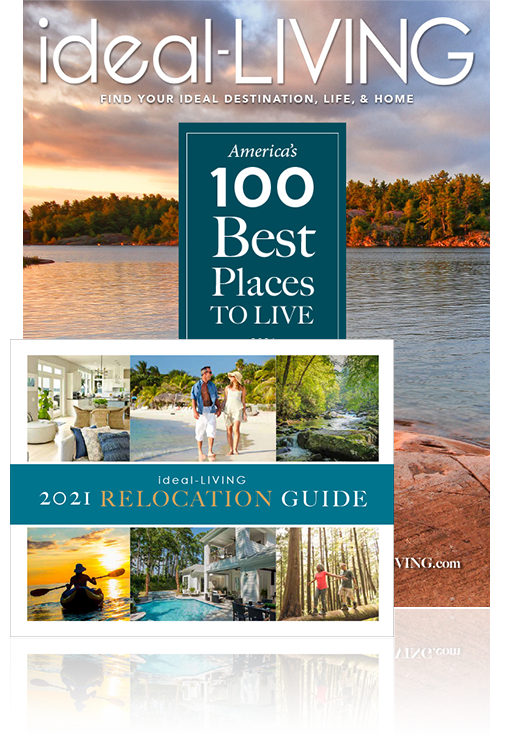Requirements of Living in Gated Communities
Request Your Free Relocation Guide

Requirements of Living in Gated Communities
Gated communities offer an appealing mix of privacy, security, and exclusivity. But living in one of these communities often comes with a set of requirements and expectations that residents must adhere to. Whether you’re considering buying a home or building one from the ground up, understanding these requirements is essential to making an informed decision.
Financial and Purchase Requirements
1. Homeowner’s Association (HOA) Fees:
One of the most common financial obligations in gated communities is the HOA fee. These fees cover the maintenance of shared amenities like parks, pools, and security services. It’s important to budget for these costs, as they can range significantly depending on the community and the amenities offered.
2. Financial Criteria and Credit Checks:
Gated communities, especially those with luxury amenities, may require potential buyers to meet specific financial criteria. This can include credit checks, proof of income, and even an interview with the community board or HOA to ensure a good fit.
3. Property Taxes and Insurance:
Residents are responsible for property taxes and homeowners insurance. Because gated communities often feature high-end homes, these costs can be substantial. Be sure to consult with a financial advisor to understand the full financial implications of purchasing in a gated community.
Architectural and Aesthetic Guidelines
Gated communities are known for their cohesive, attractive appearances. To maintain this aesthetic, most communities have strict architectural and landscaping guidelines.
1. Building and Renovation Rules:
If you plan to build or modify a home, you’ll need to follow specific guidelines set by the community. This can include approved architectural styles, color palettes, and building materials. You may also need to submit plans for approval before beginning any construction.
2. Landscaping and Exterior Maintenance:
HOAs often regulate landscaping to ensure a uniform look throughout the community. This can include rules about plant types, lawn care, and even holiday decorations. Regular maintenance is typically required, and failure to comply can result in fines or penalties.

Community and Conduct Regulations
Living in a gated community means adhering to rules that go beyond just property aesthetics. These regulations help maintain a safe, pleasant environment for all residents.
1. Noise and Conduct Rules:
Many communities enforce quiet hours and have rules against disruptive behavior. This ensures that all residents can enjoy a peaceful atmosphere, free from excessive noise or disturbances.
2. Pet and Animal Control Policies:
Pets are often allowed, but there may be restrictions on the number, size, or breed of animals. Some communities also require pets to be on a leash at all times when outside the home and may have designated areas for walking pets.
3. Parking and Vehicle Restrictions:
Parking is often strictly regulated to ensure streets remain clear and aesthetically pleasing. This can include restrictions on street parking, the type of vehicles allowed, and where guests may park. Some communities also have rules regarding the storage of recreational vehicles, boats, and trailers.
Security and Access Control
Security is a key feature of gated communities, but it comes with its own set of regulations.
1. Visitor Access Protocols:
Guests often need to be pre-approved by residents and may be required to check in with security upon arrival. Some communities use electronic systems for visitor management, while others have more traditional gatehouse setups with guards.
2. Resident Identification and Access:
Residents may receive electronic access cards, key fobs, or biometric identification to enter the community. It’s important to keep these secure, as losing them can result in costly replacement fees and potential security risks.
3. Emergency Protocols:
Gated communities typically have detailed emergency protocols, including evacuation procedures and access for emergency vehicles. Familiarizing yourself with these guidelines is crucial for the safety of you and your family.
Legal and Compliance Considerations
1. Permits and Zoning Laws:
If you’re building a home, you’ll need to ensure compliance with local zoning laws and obtain all necessary permits. This can include special permits for construction within gated communities, especially those located near sensitive areas like coastlines or nature reserves.
2. Legal Agreements and Covenants:
Before purchasing, you’ll likely need to sign a legal agreement that includes the community’s covenants, conditions, and restrictions (CC&Rs). These documents outline the rules you must follow as a resident and the penalties for non-compliance.
Living in a Gated Community – Is It Right for You?
Living in a gated community offers a unique blend of security, luxury, and exclusivity. If you value privacy, a well-maintained environment, and access to exclusive amenities, a gated community might be the ideal choice. For those considering a move, be sure to explore our comprehensive Relocation Guide to learn more about various communities, lifestyle options, and what it takes to become part of a gated community. With over 30 years of experience, we can help you find the perfect community that aligns with your needs and lifestyle.
© 2026 ideal-LIVING Magazine • 265 Racine Dr #201 • Wilmington, NC 28403 • 910.763.2100
